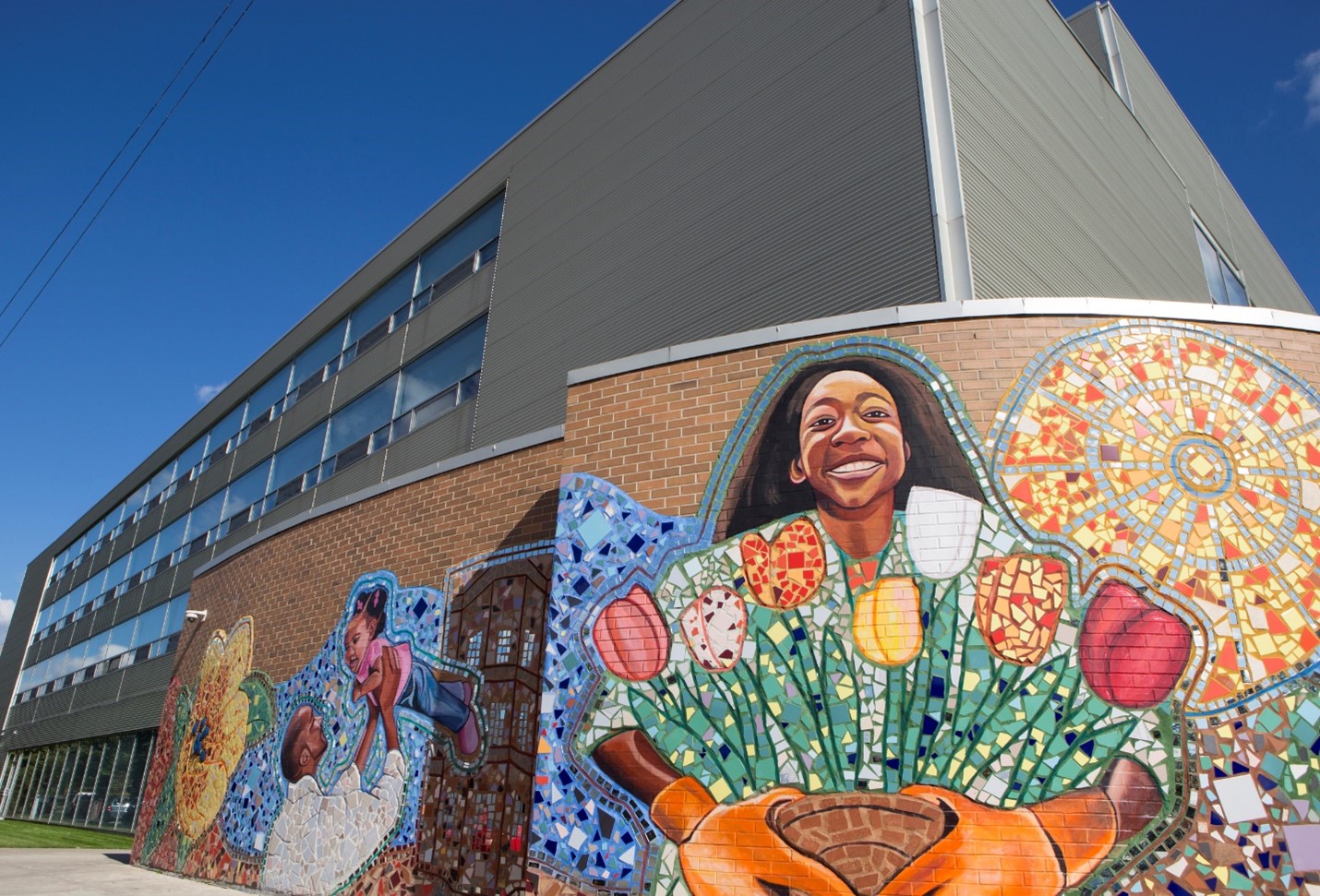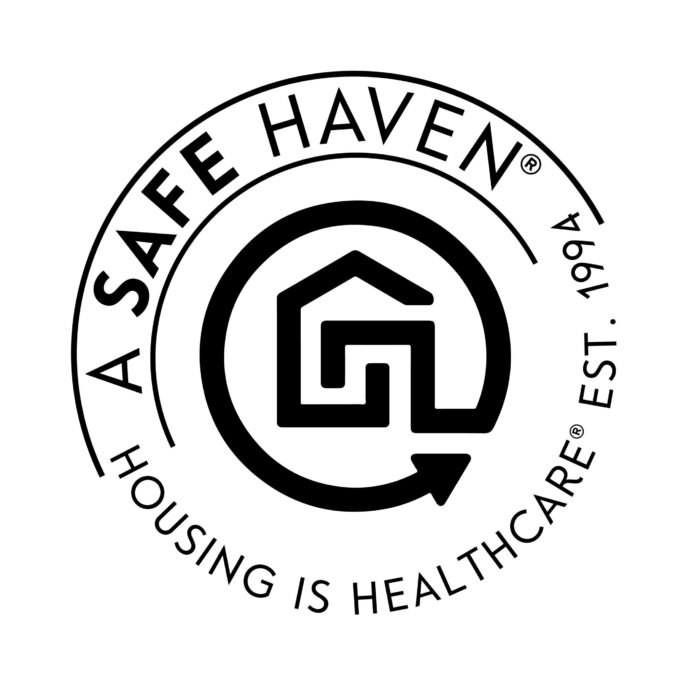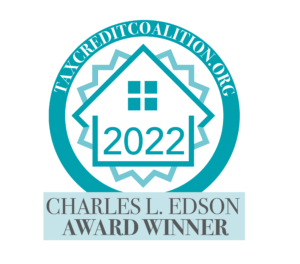
COMMUNITY-BASED INTEGRATED BEHAVIORAL HEALTH CENTER TO THE WEST SIDE
Constructed in 2006 at the intersection of Roosevelt Road and California Street, A Safe Haven Foundation has been a staple in the North Lawndale community as a place where the homeless could seek shelter. Staff of the shelter work to ensure that everyone served has the opportunity to take care of their mental, physical and financial health.
Scheduled to launch mid-year 2023, in collaboration with its partner Agency, A Safe Haven, the agency will open its doors to one of Chicago’s most innovative community-based integrated behavioral health centers in the heart of the west side.
A Safe Haven has maintained its status as a staple in the North Lawndale community through its reputation, dependability and partnerships with city, county, state and federal funding agencies; but most importantly, with community stakeholders and members.
A Safe Haven Foundation is grateful to Congressman Danny K. Davis; and is partnering with Illinois State Representative LaShawn K. Ford’s Westside Heroin/Opioid Task Force, and Commissioner Dennis Deer to bring this project to fruition.
A Safe Haven’s leadership is committed to this vision of providing prevention, intervention, and treatment services for individuals experiencing homelessness and community residents that are person-centered, well-coordinated, and easy to navigate. A Safe Haven is proud of the services that will be available from the Center, including the work to address the opioid epidemic, by expanding Medication Assisted Treatment (MAT)/ Medication Assisted Recovery (MAR), Mental Health Counseling, Harm Reduction Substance Use Treatment, with plans to include on-site Primary Health Care and a Pharmacy for prescription refills.
“Over the past two years, Representative LaShawn K. Ford Westside Heroin/Opioid Task Force has developed a street outreach collaborative that delivers an on-site warm hand-off process, wherein people who express an interest in receiving treatment and other supports can access them immediately. These services include induction of Methadone and Suboxone on site, entry into Medical Stabilization Units at local hospitals, in- and out-patient treatment and medical care. The Behavioral Health facility that ASHF is opening will provide a key component to this array of services, something that has been noticeably lacking for some time now” said Lee Rusch, Director of the Westside Heroin/Opioid Task Force.

A Safe Haven’s overdose prevention programs efforts focus primarily on homeless populations, however, since 2006, the agency has sustainably grown as a grassroots leader among human service organizations in Chicago and recognizes the overwhelming impact of substance use disorder within the homeless community. The addition of the integrated Behavior Health Center will enable A Safe Haven to increase the Harm Reduction program offerings and increase impact for homeless individuals and residents from the community. The Harm Reduction initiatives support distribution of opioid reversal medication by building awareness of the benefit of the strategy, training staff how to use the medications, and connecting them to resources of naloxone and suboxone, and enroll clients in MAT/MAR program expansion services.
A Safe Haven employs a team of professionals on-site which includes a Medical Director, Nurse Practitioners, Psychiatrists, Therapeutic Substance Use Disorder Therapists and Mental Health Counselors to assist with the reduction and incidence of fatal overdose. Its overdose education and naloxone training programs teach individuals to recognize the signs of opioid overdose, risk factors for opioid overdose (e.g., mixing opioids with other sedatives, drug potency or purity considerations, high dosage of prescription opioids, using opioids alone), and how to administer overdose reversal medication during an opioid overdose.
The ultimate goal of A Safe Haven’s MAT/MAR program is full recovery, including the ability to live a self-directed life. The treatment approach has been shown to improve patient survival; increase retention in treatment; decrease illicit opiate use and other criminal activity among people with SUD; increase client’s ability to gain and maintain employment and housing. Medication for Opioid Use Disorder (MOUD) aims to identify strategies to increase access to effective medical treatment for OUD, with a focus on addressing barriers limiting access to MOUD in a behavior healthcare setting that A Safe Haven clients with OUD are likely to encounter.
ASHF plans to target vulnerable populations that evidence shows are more likely to need access to treatment. A Safe Haven clinicians realize that many obstacles and barriers to treatment exist for individuals in crisis. The rising toll of the opioid crisis makes this an opportune time to catalyze and expand MOUD treatment within this system of care.
These efforts, while powerful, are not enough. There are daily reminders of the impact that mental illness and substance use disorders are having on individuals, families, on west side communities. Recent assessments and community engagement efforts have identified the need to reduce fragmentation of services; better integrate mental health, substance use disorder, and primary care medical services; and expand access to peer support, trauma-informed care, and recovery support services. Our challenges are clear, and it is no surprise that mental health and substance use disorders are considered to be a leading health problem facing our health system.
The addition of the new Center will be more evidence of our collective commitment to address the challenges we face and help transform and better contribute to the west side community’s behavioral health system. Collaboratively, we expect we will make notable progress—but we must continue to innovate and refine our services in ways that promote prevention and early intervention, expand access and engagement in care, improve care coordination and service integration, and foster recovery and resilience.
“The community project concept is instrumental in promoting unification and connectivity, especially among human service entities who sometimes work together on problems and issues to be very productive. This type of project enhances output and generates results that otherwise may not be realized. A Safe Haven Foundation has a long record and great history of providing meaningful services to their clients and the community as a whole,” said Congressman Danny Davis.
The Center will be designed to address and improve overall results from community prevention, ongoing services for current residents of A Safe Haven, and an institutional healthcare aftercare perspective. The strategic outreach of the new Center to the community will be focused on raising awareness and encouraging referrals as a Harm Reduction evidence-informed model. A Safe Haven is committed to meeting and serving the multi-faceted needs of anyone that requires access to ongoing overdose intervention services, and mental health counseling services.

Under new leadership, Mark G. Mulroe was recently named as the new President of A Safe Haven Foundation, and a top priority is launching the new integrated Behavioral Health Center. He envisions a thriving community where overdose prevention is possible, and he hopes to create a more holistic view of health and wellness beyond physical health.
A Safe Haven is one of the largest human services providers in the Chicago and Cook County region. A Safe Haven’s 125,000-square foot main facility is centrally located in North Lawndale on the Westside of Chicago. A Safe Haven provides emergency, transitional, senior, independent, veteran, recovery and permanent supportive housing. The organization employs nearly 200 staff and serves almost 5,000 homeless and at-risk individuals annually. Its comprehensive Continuum of Care Core Services includes the following programs: Housing, Behavioral Health, Job Training and Placement, Adult Education, Youth Development and Healthcare. ASHF’s comprehensive person-centered continuum of care services encompasses the fundamental components identified by Illinois Department of Human Services, Division of Substance use Prevention & Recovery, but also the necessary linkages and referral mechanisms among these components to facilitate the movement of individuals and families toward permanent housing, recovery, and economic self-sufficiency.
While there are multiple paths to recovery, ASHF approach is one of the few solutions that address all of an individual’s physical, economic, social, and spiritual needs, in a holistic way. The ASHF clinicians provide a critical, practical, frontline defense for people in the depths of despair from emotional, mental, and financial crises. The agency’s leadership has witnessed the human potential that emerges from this approach, enabling people formerly lost to substance use disorder or living on the street to transform themselves and reclaim their lives, even to the point of fulfilling their own version of the American dream. The clients served by this process do not seek handouts; they seek empowerment.
“The addition of the ASHF Behavioral Health Treatment Center is a game changer for Opioid Use Disorder, substance use treatment and prevention for the west side community. Clients will be able to seek treatment, meet with a Counselor or Therapist, secure Housing and Employment, connect with Primary Care, and fill their prescription at one place, under one roof,” says Mark G. Mulroe, A Safe Haven President.
A Safe Haven Foundation achieves its mission by offering respect, encouragement, resources, and assistance to help people get their lives back on track.


